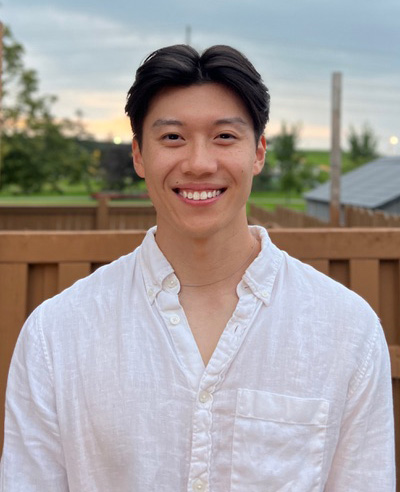- Please tell us a little bit about yourself.
My name is Sean McRae, and I am a third year PhD student in the Department of Medical Biophysics at Western University conducting research under the supervision of Dr. Timothy Scholl and Dr. John Ronald. I previously achieved a Bachelor’s degree in Medical and Biological Physics at McMaster University where I completed a research project that implemented new non-invasive imaging tools into radiotherapy procedures for breast cancer patients.
2. Why are you passionate about the work you are doing, and/or do you have a personal connection to breast cancer?
We are living in a truly amazing time for science. The fast-paced field of cancer research can be both inspiring and overwhelming, but what really keeps me passionate about my work is the thought of family members past and present who have been affected by breast cancer. As someone who has personally seen the effects of breast cancer, I understand the importance of never giving up until we find a cure!
3. Why is the TBCRU Studentship Award important to you, and how does it advance your research?
The TBCRU studentship award not only supports my research pursuits, but it allows be to be a part of a great network of other breast cancer researchers in London. This is my third year being a TBCRU-funded trainee, and none of my progress to date would have been possible without the generous support from BCC and their donors.
4. In a few lines, please describe your research project, including the main objective and what problem(s) you hope to solve.
The goal of my research is to apply novel imaging tools to track the treatment of HER2-positive breast cancers in animal research models. As cell-based immune therapies against HER2+ breast cancer become more widely available, it is important to understand the fate of immune cells after delivery to the body for treatment. Not only will this help us understand how to best treat HER2+ breast cancers, but clinically there is a strong need for immune cell imaging after treatment to understand why a treatment may or may not have been successful. More specifically, we are applying a specialized type of magnetic resonance imaging (MRI) to track cell-based therapies that use immune cells called natural killer cells, which have been primed to attack HER2+ tumours.
5. Have there been any changes to or any advancements in your research since your project began?
We recently learned that we could improve our ability to image very small numbers of cells by constructing specialized imaging hardware. We are currently running experiments to determine the actual gain from our new devices, but we believe that we could be improving our detection efficiency by 2-3 times! I have learned that research is full of incremental advancements that can eventually lead to big victories, especially if you are patient and persistent!
6. Have you had an opportunity to present (or publish) your research to your peers or the broader research community? Was it at a national or international meeting or in some other way?
This year I had the chance to present my previous work at two local and two international conferences. We are also currently in the process of publishing some of our research results in the Journal of Medicinal Chemistry.
7. How will your research be applied in the clinic or in a real-world setting? How will patients benefit from the results of your work?
My work is currently in very early stages of development, but we are confident that we will be able to transition our imaging tools into the clinic to directly benefit breast cancer patients. The importance of non-invasive, real-time imaging of therapeutic cells during immunotherapy is clear, and the challenge lies in developing a system that can use clinically-available imaging machinery such as MRI, with enough sensitivity to confidently monitor small numbers of cells throughout the body.
8. Tell us about your involvement in the Breast Cancer Canada fundraising events (Raise More Challenge, One Billion Steps Challenge).
This year I have continued my involvement in BCC fundraising initiatives by co-organizing a bake sale with fellow TBCRU trainee Nitara Fernando for the Raise More Challenge. With the support from our peers, we raised almost $700 in one afternoon!
9. What are your hobbies? What are you currently reading, watching or listening to outside of the lab?
Outside of the lab, I love to play the guitar and perform at local venues around town. I love using music as a creative outlet and have recently got into videography as part of my musical storytelling. Playing the guitar also gives me the chance to mentor young aspiring guitarists through an organization called GTA Instrumentors that pairs students with a mentor for 10 weeks of one-on-one guitar lessons.




